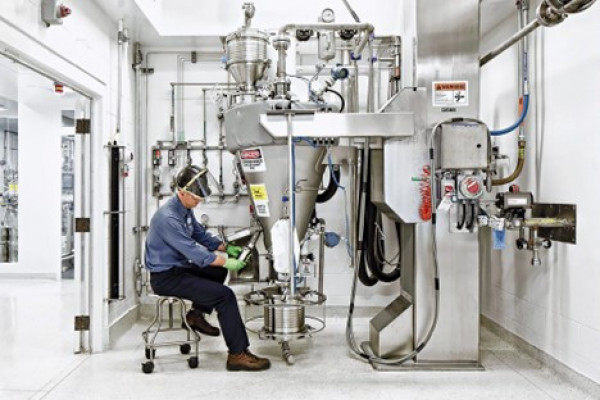Driving Innovation in Drug Manufacturing: The Next Frontier for Pharma Companies
Event Date : 04-Apr-2024
In the rapidly evolving pharmaceutical landscape, innovation in drug manufacturing is not just advantageous—it's imperative. As the industry faces increasing demands for efficiency, sustainability, and personalized medicine, the need for innovative manufacturing processes has never been more critical. This exploration delves into how pharmaceutical companies are pioneering advancements in manufacturing, setting new industry standards, and shaping the future of pharmaceutical production.
Current State of Drug Manufacturing
Traditional drug manufacturing processes, while proven, face limitations in agility, scalability, and environmental impact. With the growing emphasis on precision medicine and the need for faster, more flexible production lines, the industry is at a pivotal juncture. Innovations in manufacturing are not just improvements; they're transformations that enable companies to meet contemporary challenges head-on.
Emerging Trends and Technologies in Manufacturing
Several cutting-edge trends and technologies are at the forefront of this manufacturing revolution:
● Continuous Manufacturing: This approach offers a shift from batch processing to a continuous flow, enhancing efficiency and consistency in production.
● 3D Printing of Drugs: Offering the ability to produce drugs on-demand, 3D printing introduces new possibilities for personalized medicine and decentralized manufacturing.
● AI and IoT in Manufacturing: The integration of Artificial Intelligence and the Internet of Things in manufacturing processes enables unprecedented levels of process optimization, predictive maintenance, and quality control. These innovations are not merely enhancing existing processes; they're opening doors to new possibilities in drug production, from increased speed and precision to reduced waste and energy consumption.
The Role of Data Analytics in Manufacturing Innovation
Data analytics stands as a cornerstone in the new era of drug manufacturing. With the capability to process vast amounts of data in real time, pharmaceutical companies can now achieve:
● Enhanced Process Insights: Real-time data analytics provide deep insights into manufacturing processes, enabling more informed decision-making and optimization.
● Predictive Maintenance: Machine learning models can predict equipment failures before they occur, reducing downtime and maintenance costs.
● Quality Control: Advanced analytics can detect anomalies in production, ensuring consistent product quality and compliance with regulatory standards.
The integration of data analytics into manufacturing processes signifies a shift towards more intelligent, responsive, and reliable production systems.
Overcoming Barriers to Innovation
While the path to innovation is laden with opportunities, it also presents challenges. Regulatory compliance, investment costs, and the need for workforce upskilling are among the key barriers pharmaceutical companies face. To overcome these hurdles, a strategic approach is essential, encompassing:
● Regulatory Strategy: Developing a clear strategy for navigating the regulatory landscape, ensuring innovations comply with industry standards.
● Investment in Technology: Prioritizing investments in technologies that offer long-term value and competitive advantage.
● Workforce Development: Investing in training and development to equip employees with the skills needed to operate and thrive in an innovative manufacturing environment.
Future Perspectives on Pharma Manufacturing
Looking ahead, the trajectory of drug manufacturing innovation points towards even more integrated, responsive, and patient-centric approaches. The potential for fully automated production lines, enhanced customization of therapies, and further integration of sustainability practices paints a promising picture for the industry's future.
Conclusion
Innovation in drug manufacturing is not just a response to current challenges; it's a proactive step towards a future where pharmaceutical production is faster, more efficient, and more attuned to patient needs. For pharmaceutical companies, the commitment to innovation in manufacturing is a commitment to the future—a future where the boundaries of what's possible in drug production continue to expand.


Exploring the Evolving Hypertension Market; identifying Key Market Trends and Opportunities.
Aug, 2023
Exploring the Evolving Hypertension Market; identifying Key Market Trends and Opportunities.

Pharma News Intelligence: Your Key to Staying Ahead in the Pharmaceutical Landscape
Sep, 2023
Discover the importance of Pharma News Intelligence in guiding research, market trends, and regulatory shifts in the pharmaceutical world.

The Role of Big Data in Enhancing Pharmaceutical R&D Efficiency
Sep, 2024
Learn about the integration of diverse data sources, the use of advanced data management tools, and the role of AI and machine learning in extracting actionable insights.